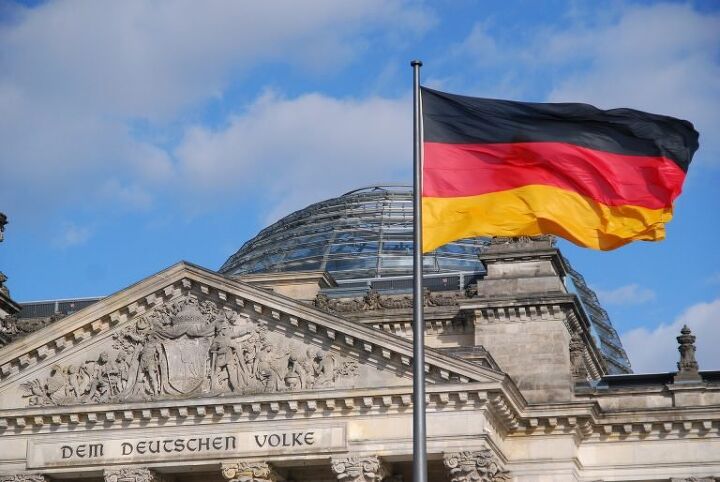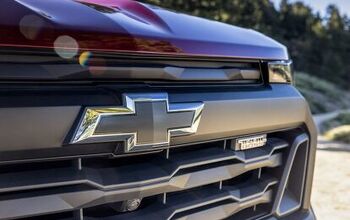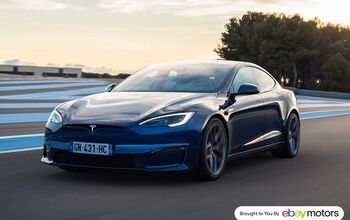EU Launches Emissions Collusion Investigation Against German Automakers

Roughly one year ago, German automakers were confronted with a crisis. Following Volkswagen’s diesel emissions fiasco, European antitrust regulators became suspicious that BMW, Daimler, and VW Group were involved in a longstanding automotive cartel that cooperated on decisions regarding technical issues, development, supplier management, and illegal price fixing. Investigators were also concerned manufacturers worked together to standardize diesel treatment fluid (AdBlue) reservoirs to reduce exhaust emissions, then encouraged each other to cheat on emissions tests when they were deemed insufficient.
This resulted in a series of raids and then almost a full year of silence on the matter. However, if Volkswagen’s dieselgate has taught us anything, it’s that German authorities prefer a snail’s pace when pursuing a criminal probe.
Apparently unsatisfied with the initial findings, the European Commission opened an in-depth and official investigation on Tuesday against the “circle of five,” a group that includes Audi, VW, Porsche, Daimler, and BMW. The quintet is accused of holding meetings where they colluded to limit the development and application of certain emissions control systems for cars sold in Europe. There’s also an accusation of price fixing.
“These technologies aim at making passenger cars less damaging to the environment. If proven, this collusion may have denied consumers the opportunity to buy less polluting cars, despite the technology being available to the manufacturers,” European Competition Commissioner Margrethe Vestager said, according to Reuters.
The good news, at least for the automakers, is that the previous probe yielded no signs that the companies illegally coordinated with each other in the use of defeat devices to cheat regulatory testing. Investigators also said that, while the companies are believed to have discussed common requirements for car parts and testing procedures, there was nothing to prove it was flagrantly anti-competitive.
That makes this whole thing a little confusing. Daimler and Volkswagen have already claimed whistleblower status to avoid any potential fines and all German automakers have said they’ll cooperate with the EU’s investigation. However, with no new evidence other than proof that meetings took place, the anti-trust probe looks a little bit like a witch hunt. That doesn’t mean the manufacturers should be exempt from suspicion; some are “whistleblowing,” after all. But we should still remind ourselves that the EU really has it out for diesel right now.
“The automotive industry was once a jewel in Europe’s industrial crown, but its global reputation is now deeply tarnished and cannot be trusted anymore,” said Greg Archer, director of the green Transport & Environment campaign. “It has become its own worst enemy and needs regulators to act with strength and decisiveness to clean it up and establish rules that put it on a path to zero emissions.”
Depending on how much you support the cause, such a path could mandate bullying automakers to adopt alternative energy vehicles and give up on the frustrations associated with diesel. Then again, carmakers have been known to circumvent the rules.
The companies could face fines of up to 10 percent of their global turnover if convicted of actively engaging in a corporate conspiracy. But that seems like a long way off at this point. Expect more raids in the coming months, followed by another bout of silence before regulators decide whether or not to prosecute.

A staunch consumer advocate tracking industry trends and regulation. Before joining TTAC, Matt spent a decade working for marketing and research firms based in NYC. Clients included several of the world’s largest automakers, global tire brands, and aftermarket part suppliers. Dissatisfied with the corporate world and resentful of having to wear suits everyday, he pivoted to writing about cars. Since then, that man has become an ardent supporter of the right-to-repair movement, been interviewed on the auto industry by national radio broadcasts, driven more rental cars than anyone ever should, participated in amateur rallying events, and received the requisite minimum training as sanctioned by the SCCA. Handy with a wrench, Matt grew up surrounded by Detroit auto workers and managed to get a pizza delivery job before he was legally eligible. He later found himself driving box trucks through Manhattan, guaranteeing future sympathy for actual truckers. He continues to conduct research pertaining to the automotive sector as an independent contractor and has since moved back to his native Michigan, closer to where the cars are born. A contrarian, Matt claims to prefer understeer — stating that front and all-wheel drive vehicles cater best to his driving style.
More by Matt Posky
Latest Car Reviews
Read moreLatest Product Reviews
Read moreRecent Comments
- Add Lightness Let's be real, this $C162,000 truck will only ever be used to it's limits by it's civilian owner in the middle east and then only for a few days until the thrill wears off and it's on to the next halo truck.
- Ajla If I were allowed to rule with an iron fist and had the capital to build at least 50k units I'd take the car company.
- Eric I would take the house, sell it at a profit to some poor schmuck and invest the profit in something other than "green technology".
- Urlik Of course the IIHS moves the goal posts. It’s all about staying relevant.
- The Oracle Good riddance.


































Comments
Join the conversation
"emissions compliance secured"